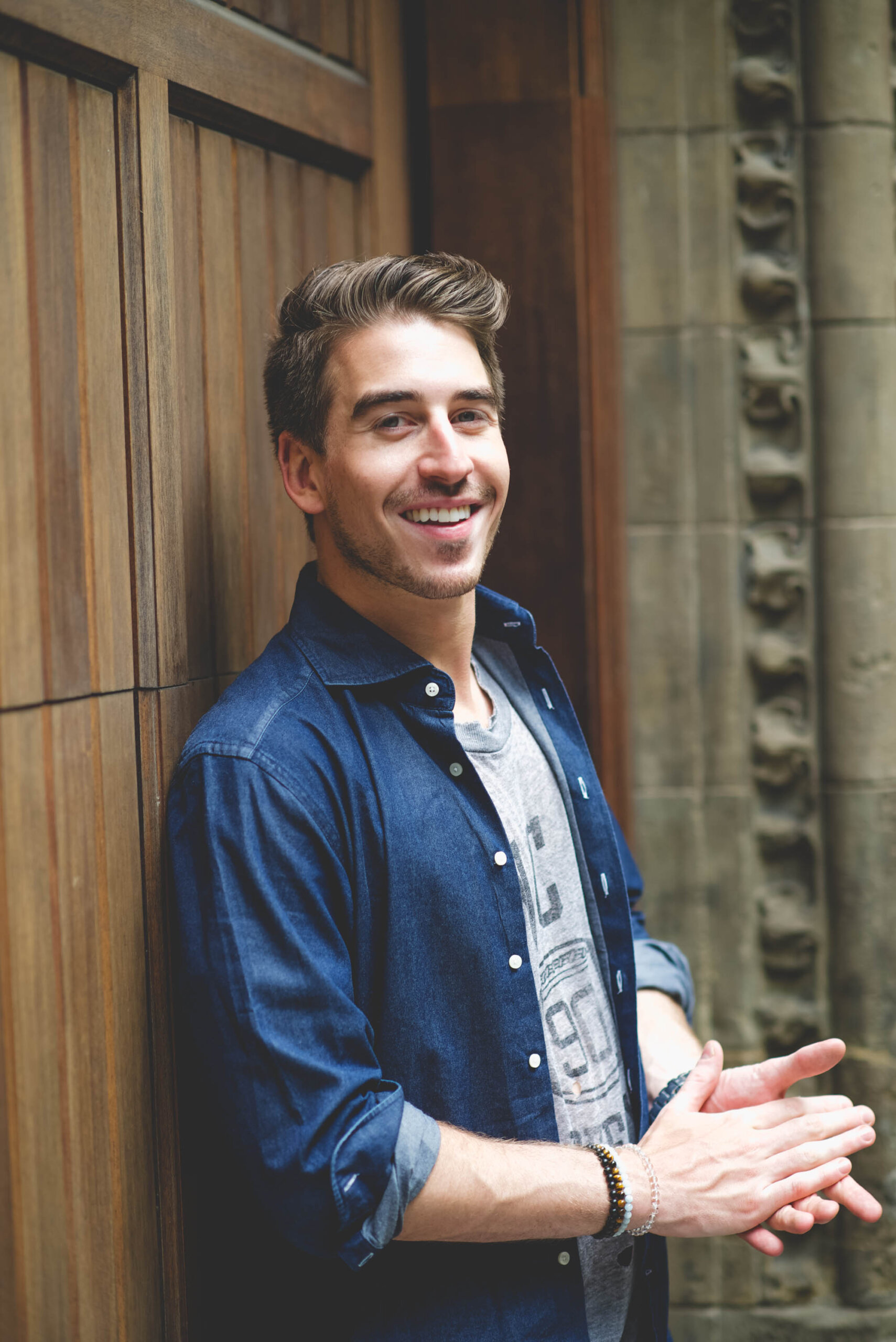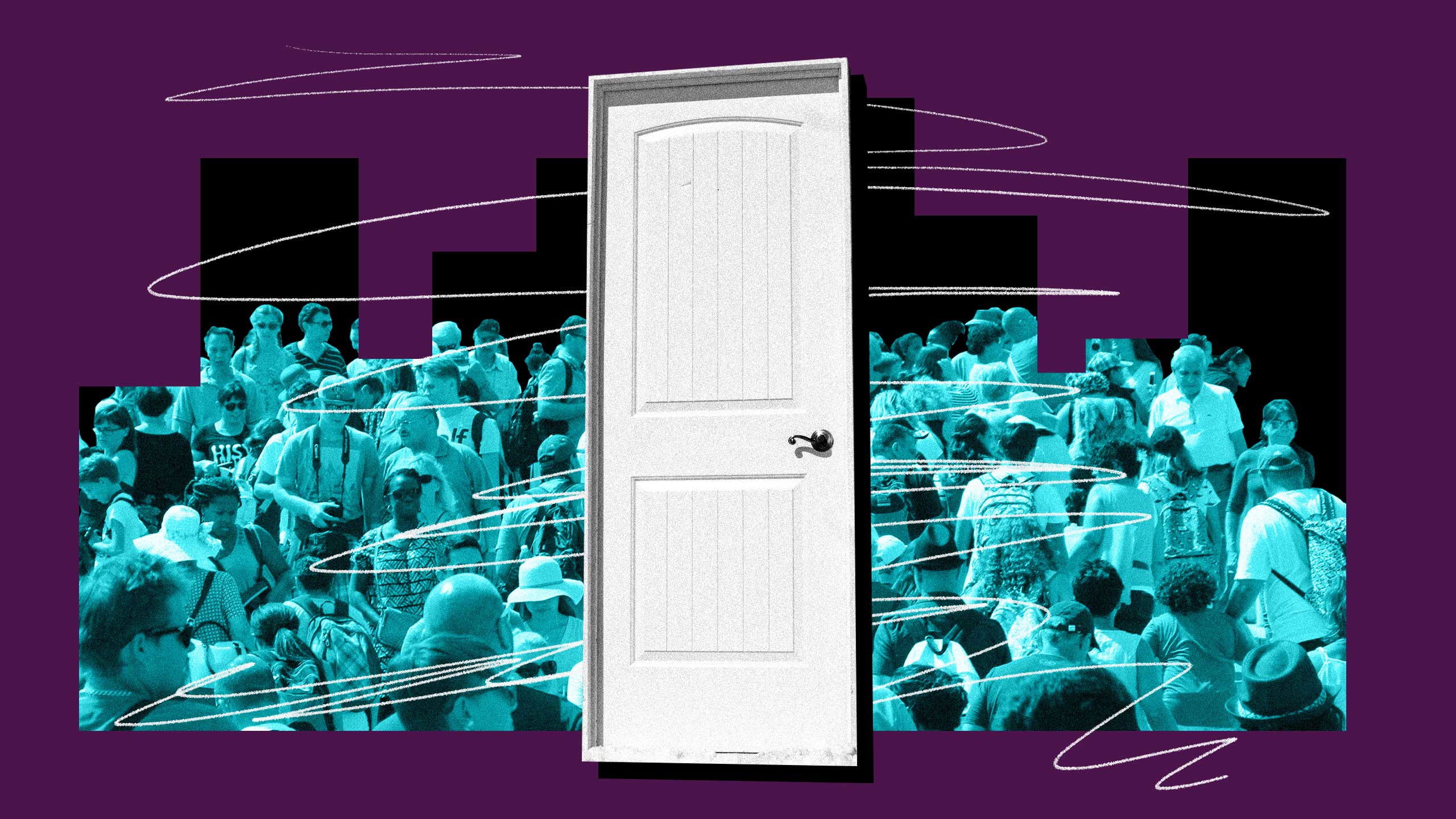It was a humid day in August when my parents took me to Caribana (now known as the Toronto Caribbean Carnival) for the first time. I was around four or five years old and we were packed in like sardines among the throngs of revellers on Lakeshore Boulevard. I remember feeling overwhelmed. My dad bought a can of Coca Cola to help me cool down and within minutes of taking a couple sips, I was throwing up in the middle of the street. Was the heat a contributing factor? Sure. Did the caffeine irritate my stomach? Maybe. But I suspect there was something else at play.
While there are times when I enjoy mixing and mingling socially, when it comes down to it, I’m an introvert at heart. I’m not a huge fan of crowds or large gatherings, and I tend to plan my exit strategy well in advance of stepping foot into a party. I typically require downtime immediately following hangouts with high energy friends. I value my alone time and I need space to think and hear my own thoughts. And that was all pre-pandemic…though I have to admit that months spent in lockdown have me craving connecting with people IRL.
As countries like Canada, the U.S. and the U.K. loosen public health restrictions, many of us are struggling to come to terms with what a return to regularly scheduled social programming looks like.
According to Miami-based life coach and spiritual seeker Jordan Bach, what we’re feeling is a “very normal response to processing a pandemic and all the social changes that come with it.” Bach believes in the power of human connection. He was named “an LGBT architect of the next decade” and included in The Advocate’s list of “40 Under 40 Most Accomplished Leaders.” Fresh off a one-year hiatus from social media and having relocated to Miami from New York City, Xtra caught up with Bach to hear what he has to say about the psychological, social and spiritual side effects of the pandemic, and to get his take on the phenomenon of languishing and how to find motivation, navigate social relationships and adjust to post-pandemic life.
Lack of physical intimacy and social interaction, increased screen time and disrupted sleep are just some of the issues we’ve been dealing with for the past year and a half. Are these pandemic side effects long-lasting or are they reversible?

Credit: Courtesy of Jordan Bach
The psychological toll—not just of COVID-19-related deaths and the grief that one naturally experiences after losing a loved one, but of the lockdown measures themselves—has been huge. Suicides, alcoholism, substance abuse, spousal abuse, child abuse—the rates of all these things are going up.
Many of the effects of the pandemic are reversible, but what cannot be understated is the amount of very real trauma that people have experienced as a result of the abruptness with which their lives have been upended.
The long-lasting side effects that I’m seriously concerned about are those affecting children. My sister has children, and I’ve seen how they’ve been harmed by being out of school and barred from interacting with their friends for over a year. It doesn’t matter if you don’t have children or even particularly like them; what is true is that today’s children become tomorrow’s leaders.
As we start to come out of isolation, we’re going to be more socially anxious than before, more fearful of physical touch, more awkward when it comes to dating, but I think those things are reversible. Once we realize that we need to get back to real life and we get about the business of doing it, I think we can get back into the groove pretty easily. I’m always heartened to remember that human beings are mostly good at heart, friendly and thrive with genuine intimacy.
What about the phenomenon of languishing or lacking focus and just feeling blah. How do we find the motivation to resume our lives?
One of the things you can do to get your life moving again is to get your body moving again. If you move for just 25 minutes every single day, and if you’re consistent about it, it will help get your life back on track. Throw on your headphones, put on some good music or a podcast, and maybe just walk and look at the world around you. You can also use a calendar and check off each day that you do it. Even if it’s just a walk that you’re doing consistently, what’s most important is that you’re telling yourself, “Okay, I have to get out of the house and do something for myself every single day without fail.”
You can look at this period in history as a time of disruption or a time of possibility in your own personal life. So many people have lost jobs, some people have lost loved ones and some people have lost friends, and that can’t be understated. Sometimes you have to let go in order to move forward. When you release something—whether it was something you wanted to release or not—it leaves a space. And that space is a possibility. So don’t think it’s silly to start envisioning now what you want your life to be filled with when the world opens back up.
As regions around the world loosen public health restrictions, a lot of people are experiencing re-entry anxiety as they try to acclimate to a new normal. Is this a cause for concern?
I don’t accept or condone the phrase “new normal.” We should guard against the normalization of an abnormal way of living. This crisis and the profound truths it revealed to us can lead us to a world better than the one that preceded lockdown, if only we listen closely.
I’d also encourage us all to embrace flexibility: there are many people who won’t be going back to their offices even when the world is fully open again, and some of them prefer it that way. It allows parents to work from home with their children, for example.
To the fear of life going back to normal I say: you can do it. Civilization needs human connection, in-person contact and commerce in order to flourish. We all need to play our part in getting back to school, getting our economy back up and running and also making lifestyle choices that support our wellness and the wellness of our communities.
Let’s dig a little deeper. What do we, as LGBTQ2S+ folks, need to do to get back into the swing of things when it comes to our relationships and social lives?
Just get back to doing what you were doing before. I’ve been to restaurants, nightclubs and gay bars here in Miami many times in the past several months.
That said, maybe you’ve always had social anxiety and it has worsened [throughout the pandemic]. This is a great opportunity to build social connections. What you’re going to see [as lockdown restrictions are lifted] is a lot of good, friendly, happy people who are excited to connect with other human beings. Look for those people and connect with them. If you know someone who is feeling fearful or intimidated, give them a call and offer to go out with them, whether to a bar or restaurant, the beach or the movies.
Even after it is safe to gather in public again, I suspect there will be days where we’ll be tempted to hide out at home in our loungewear as a result of anxiety or of languishing. Should we fight that inertia?
You cannot live an abundant, meaningful life while isolating yourself from other people. It’s simply not possible. I am immunosuppressed, and every time I’ve gone out into the world to connect with and love other people, what I’m doing is choosing God over fear. I wish others the same freedom from fear.
Brené Brown talks about the betrayal of disengagement: “Of not caring. Of letting the connection go. Of not being willing to devote time and effort to the relationship.” When I read Brown’s words, I made a change in my life. Even [on those] days when I work from home and I’m not really in the mood and I’d rather just be alone, if I get an invitation, I remember that line and I ask myself: am I turning down an opportunity for intimacy? More often than not, I’ll get out of bed, put on my shoes and get out the door so I can receive from God opportunities to connect deeply with other people. Intimacy is necessary and irreplaceable fuel for our psychological well-being. I’m talking primarily here about non-sexual intimacy between friends and family. You can think of intimacy as “into-me-see.” It’s a deep feeling of connection, acceptance and compassion.
“We’re not going to be let out of our lockdown cages, so to speak, into a perfect world where everyone is smiling and happy.”
There will always be things that are challenging. Life is difficult. Buddhists say that life is, in large part, suffering. We’re not going to be let out of our lockdown cages, so to speak, into a perfect world where everyone is smiling and happy. People will still go through horrible breakups or be rejected on a date or struggle with body image. This stuff will continue. That only highlights the importance of connecting with each other on a deeper level. When you are presented with an opportunity to connect, I hope you connect.
What if we actually want our lives to look different than they did before the pandemic?
You can either look at this as a time of death and destruction, loneliness or oppression—and that would be understandable—or you can look at this as a time of opportunity. When you lose a job, it’s a loss, certainly. It’s also an opportunity to ask what kind of work you really want to be doing in the world. When you go through a breakup, it can be devastating, of course. But it’s also an opportunity to tune into what energy you want to create with another partner. This is an opportunity to reimagine the way you want things to be.
“You can only move forward by honouring where you already are.”
The good thing about the inherent interconnectedness of this age, which some people call the Age of Aquarius (Aquarius rules technology and connection, so it makes sense that we’re technologically connected), is that there are more possibilities available to us to connect with like-minded people, and to connect with people who are not like-minded from whom you might learn or teach something new. Now is a time of possibility.
One simple, practical thing you can do is ask yourself: How can I live a better life right now given my exact circumstances as they are? How can I make my life the most powerful, the most vibrant, the most intimate and connected life possible given my current circumstances?
You can only move forward by honouring where you already are. That doesn’t mean you sit around and lament what you’ve lost. What it really means is appreciating what it is that you have and asking yourself: How can I grow what I have? How can I grow the love and the appreciation and the gratitude and the sense of vitality in my life that I already have?
Sounds like we can draw on some of what the pandemic has taught us about living in the moment.
The doorway to the life you want isn’t at some point in the future or in some physical location. It’s right now, in this moment, as you’re reading this. How are you showing up? How are you sitting? What is the look on your face? Who are you right now? This very moment is the doorway to the life you want. It’s an opportunity. Use the opportunity to the best of your ability.
You don’t have to fix your entire life today. You just need to show up as who you really are: a smart, capable, resourceful, discerning, compassionate person who is here on Earth to learn lessons of strength, resilience, forgiveness, love and joy.
What’s one lesson you hope people will carry with them as they move beyond the pandemic?
Human connection. Our connection to other human beings is the most important thing in our lives and so it’s understandable that people, stripped of the ability to go about their ordinary lives, are like, “Okay, I don’t have much to do so I guess I’ll go on Twitter or scroll through Instagram or TikTok or turn on the TV.” It’s understandable that people do that, and sometimes it’s simply entertaining and fun.
It’s also necessary that we stop and ask ourselves: How am I doing? How is my current lifestyle affecting my psychological well-being? How is my connection or lack of connection with other human beings affecting my mental well-being?
We’re happier and more fulfilled when we are in profoundly intimate relationships with other human beings. Out of struggle, human beings can create wonderful things.
This interview has been edited and condensed for clarity.


 Why you can trust Xtra
Why you can trust Xtra


